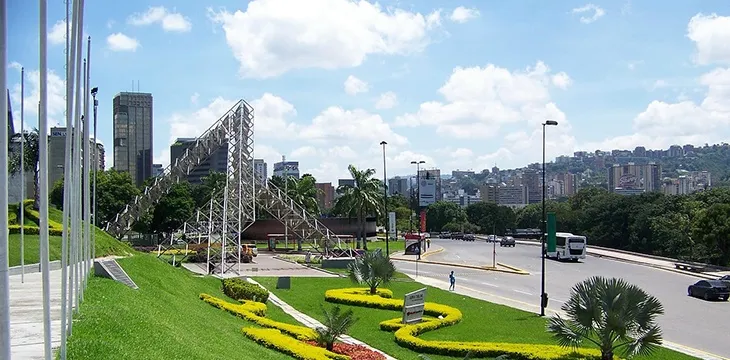|
Getting your Trinity Audio player ready...
|
It’s come in for heavy criticism, both at home and abroad. But for Venezuela’s controversial president, the state-issued Petro cryptocurrency remains a key tool for reviving the country’s ailing finances.
In a state broadcast, President Nicolas Maduro said the state would pay “protectorates and states” of Venezuela the sum of 1 million Petros, twice per month, as a means of encouraging circulation of the cryptocurrency.
This means, my compatriots, that we are assigning between 1,354,000 euros and 3,249,600 euros to governors and protectorates.
He also referenced the science sectors in Venezuela, suggesting the cryptocurrency could be used to receive payment in scientific industries.
https://www.youtube.com/watch?v=ZZ4AFlxeNTs
The announcement has been seen as the latest step from the embattled president to foster economic development in the country, which has suffered from hyper-inflation, starvation and mass emigration as a result of the deteriorating economic conditions there.
However, while the president remains keen to flog the Petro dead horse, the cryptocurrency continues to be given short shrift from opponents at home and overseas.
Opposition politicians in Venezuela have branded the cryptocurrency unconstitutional, saying that the state has no right to unilaterally secure a currency against Venezuela’s natural reserves—namely, oil.
Furthermore, Venezuela remains subject to U.S.-led international sanctions, with warnings to firms and governments worldwide not to accept Petro or deal with Venezuela on any economic basis on threat of secondary sanctions.
The latest move from Maduro follows a ruling by executive fiat in July that every branch of the Banco de Venezuela allow citizens access to Petro buying and trading services, in an attempt to encourage the use of the cryptocurrency.
The president has said that the Petro would enable Venezuela to conduct business outside the reach of U.S. sanctions, which affect mainstream financial channels. However, attempts to price state oil in Petro have also failed.
It comes amid reports that Venezuela’s central bank has been investigating secure storage of cryptocurrencies, with a view to holding crypto in reserve against its state-issued fiat and cryptocurrencies.
With the economic problems in Venezuela still continuing to cause havoc for citizens, it remains to be seen whether the president’s ongoing support for the Petro is justified.

 08-02-2025
08-02-2025 





